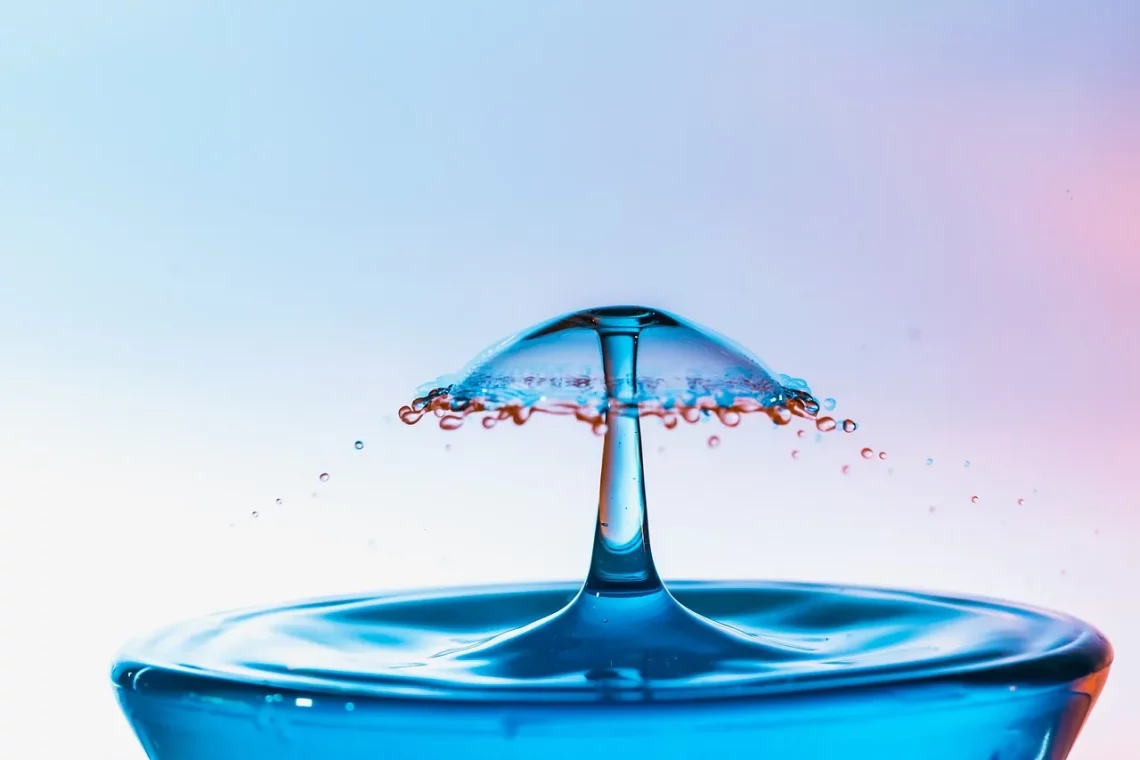
Will Drinking Water Reduce Protein Levels in Urine?
Water is essential for life, playing a pivotal role in various bodily functions. It aids in digestion, nutrient absorption, and temperature regulation, while also serving as a medium for biochemical reactions. Despite its critical importance, many people overlook the role of hydration in maintaining overall health and well-being. In recent years, there has been a growing interest in understanding how hydration impacts various health parameters, including kidney function and protein levels in urine.
The kidneys are responsible for filtering waste products from the blood, and they play a crucial role in maintaining the body’s fluid and electrolyte balance. When the kidneys filter blood, they also determine the concentration of various substances, including proteins. An increase in protein levels in urine, known as proteinuria, can signal underlying health issues. Therefore, understanding the relationship between hydration and protein levels is vital for those concerned about their kidney health or overall wellness.
This article delves into the connection between water consumption and protein levels in urine, exploring how hydration can influence kidney function and the implications for health. As we navigate through this topic, we will shed light on the importance of adequate fluid intake and its potential effects on urinary protein levels.
The Role of Hydration in Kidney Function
Hydration is fundamental for maintaining optimal kidney function. The kidneys filter approximately 50 gallons of blood daily, extracting waste products while reabsorbing essential substances. Sufficient water intake ensures that the kidneys can perform this filtration process effectively. When the body is well-hydrated, urine production increases, diluting the concentration of various substances, including proteins.
Dehydration, on the other hand, can lead to concentrated urine, which might elevate protein levels. When the body lacks sufficient water, the kidneys retain more fluid to maintain blood pressure and electrolyte balance, resulting in less urine output. This concentrated state can cause an increase in the excretion of proteins, which might not necessarily indicate kidney damage but rather a response to dehydration.
Moreover, hydration plays a role in regulating blood pressure, which is critical for kidney health. Adequate hydration helps maintain vascular volume and pressure, ensuring that the kidneys receive enough blood flow to filter effectively. Insufficient hydration can lead to complications such as acute kidney injury, as the kidneys struggle to manage waste products and maintain homeostasis.
In summary, hydration is crucial for kidney function, influencing urine production and the concentration of substances filtered by the kidneys. Drinking enough water can help maintain healthy protein levels in urine and prevent potential complications linked to dehydration.
Understanding Proteinuria: Causes and Implications
Proteinuria refers to the presence of excess protein in the urine, which can be a sign of various health conditions. While small amounts of protein in urine can be normal, significant elevations may indicate underlying problems with kidney function. There are several potential causes of proteinuria, including diabetic nephropathy, hypertension, and glomerulonephritis.
In many cases, proteinuria is transient and may result from temporary conditions such as dehydration, stress, or strenuous exercise. For example, intense physical activity can lead to a temporary increase in protein levels as a result of muscle breakdown. In these instances, hydration can play a crucial role in normalizing protein levels.
Chronic proteinuria, on the other hand, may signal more serious health issues, often requiring medical attention. In such cases, it’s essential to identify the underlying cause and determine an appropriate treatment plan. Regular monitoring of urine protein levels can help track kidney health and detect any changes early on.
While hydration is important for managing protein levels, it’s only one piece of the puzzle. A balanced diet, regular exercise, and routine check-ups with a healthcare provider are essential for maintaining overall kidney health. If you notice an increase in protein levels in your urine, it’s important to consult with a healthcare professional for a thorough evaluation and personalized advice.
The Impact of Water Intake on Urinary Protein Levels
Water intake has a significant impact on urinary protein levels. When the body is adequately hydrated, urine is typically more diluted, leading to lower concentrations of proteins and other solutes. Conversely, when dehydration occurs, the kidneys conserve water, resulting in concentrated urine and potentially higher protein levels.
Research suggests that increasing water intake can help reduce proteinuria in certain populations. For instance, individuals with diabetes or high blood pressure may benefit from adequate hydration as it can support kidney function and help manage protein levels. Furthermore, staying well-hydrated may assist in preventing kidney stones, which can also contribute to proteinuria.
It’s essential to consider individual hydration needs, as factors such as age, activity level, and climate can influence how much water one should consume. While there is a general recommendation of eight 8-ounce glasses of water a day, this may vary based on personal circumstances. Listening to your body’s thirst signals and monitoring urine color can be effective indicators of hydration status. Light yellow urine typically suggests adequate hydration, while dark urine may indicate the need for increased fluid intake.
In conclusion, maintaining proper hydration is vital for managing urinary protein levels. Adequate water consumption can help dilute urine, potentially reducing protein concentrations and supporting overall kidney health. However, individual hydration needs may vary, so it’s important to be mindful of your body’s requirements.
Best Practices for Staying Hydrated
Staying hydrated is essential not only for kidney health but also for overall well-being. Here are some best practices to ensure adequate water intake throughout the day:
1. **Carry a Water Bottle**: Having a water bottle on hand can serve as a reminder to drink water regularly. It also makes it convenient to stay hydrated while on the go.
2. **Set Reminders**: Use smartphone apps or alarms to remind you to drink water at regular intervals. This is especially helpful for individuals with busy schedules.
3. **Incorporate Hydrating Foods**: Include fruits and vegetables with high water content in your diet. Items like cucumbers, watermelon, and oranges can contribute to your overall fluid intake.
4. **Monitor Urine Color**: Pay attention to the color of your urine as a simple way to gauge your hydration status. Aim for a light yellow color, which typically indicates proper hydration.
5. **Adjust Based on Activity Level**: Increase your fluid intake during exercise, hot weather, or when you are ill. These conditions may require additional hydration to maintain optimal health.
6. **Limit Dehydrating Beverages**: While coffee and tea can contribute to hydration, consuming excessive amounts of caffeinated or alcoholic beverages can lead to dehydration. Balance these with plenty of water.
By implementing these practices, you can effectively manage your hydration levels and support your kidney health. Remember, maintaining proper hydration is a simple yet powerful way to promote overall wellness.
In conclusion, while water intake can influence protein levels in urine, it’s essential to consider this in the broader context of kidney health and individual needs. Should you have concerns about your protein levels or kidney function, please consult with a healthcare professional for personalized advice and recommendations.
**Disclaimer**: This article is for informational purposes only and is not intended as medical advice. Always consult a healthcare professional for any health-related issues or concerns.




